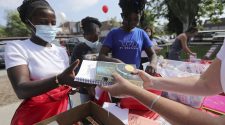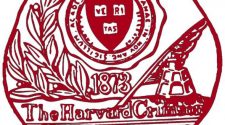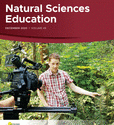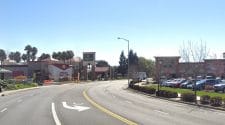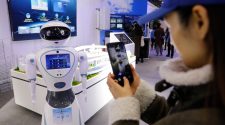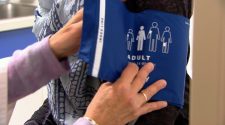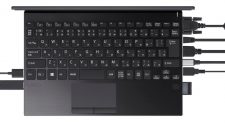Libraries have long served the role of providing communities with access to important written resources, but patrons are increasingly looking for more than just books.
As community needs evolve, libraries have been forced to evolve alongside, expanding their offerings to include necessary technologies, like Wi-Fi hot spots so people can access the Internet for free. This is often referred to as the “Library of Things,” or LoT.
Libraries in Deerfield, Ill., Concord, Mass., and Altadena, Calif., have expanded their collections to include emerging technologies and other tech tools members of the community can take home.
DEERFIELD PUBLIC LIBRARY
Deerfield Public Library in Illinois has started offering emerging technology to its patrons.
As Multimedia Librarian Ted Gray described, one of the things that librarians are taught in their schooling is to adapt to the needs of the community. The LoT collection at Deerfield Public Library is a good example of that guiding principle, said Gray.
He explained that while some communities may have needs for items like cooking supplies, the Deerfield patrons are very tech-savvy, so it made sense for the library to offer some “tech toys” like VR glasses and drones. This would allow people to try out these technologies for themselves and learn about their uses without having to purchasing them.
During COVID-19, community needs shifted, and so did needs for the LoT. Throughout this past year, Gray said that some of the most popular check-out items were Wi-Fi hot spots, Roku streaming devices, and LED projectors for outdoor movies. Some of the technology is even backed up by tutorials on the library’s YouTube page.
The collection does not have a huge budget, Gray said, but new items are purchased annually. The return on investment comes with most of these items being much higher than that of many books that the library purchases due to the high demand, he explained.
CONCORD FREE PUBLIC LIBRARY
The LoT at Concord Free Public Library in Massachusetts was initially created to help the community access things they needed like Wi-Fi hot spots, eventually growing to include other items and more instructional materials and how-to videos.
The unique thing about Concord’s LoT is that the collection has appeal to two very different demographics at different age ranges, explained Andi Graceson, library innovation and communications specialist. She detailed that assistive technologies and digital conversion technologies have been very popular with the older residents, but the emerging technologies are more geared toward a younger demographic.
In addition to basic VR goggles that connect to a smartphone, Concord’s offerings include a unique collection of coding toys geared towards children. While an adult does need to check these items out, this collection’s toys are recommended for children as young as three years old to gain fundamental knowledge on coding and practice basic science, technology, engineering and math (STEM) skills.
Items will be added as new technologies continue to emerge, Graceson explained, noting the importance of also offering older technologies that are hard to acquire, including the film-to-JPEG converter.
Like any library collection, she stated, the Concord LoT will evolve with the needs of the community.
ALTADENA LIBRARY DISTRICT
In Altadena, Calif., the LoT offerings range from VR goggles to a “ghost hunting kit” for teens, and are especially interesting because the program was launched in response to the COVID-19 pandemic. While offering a collection like this had been a topic of discussion for a while, the pandemic caused the library to “spring into action,” according to Altadena Library District Assistant Director Viktor Sjöberg.
Sjöberg said that the inability to rent out in-demand items — like laptops — during the lockdown was the impetus for the program. He said that some of the items are inexpensive tools intended to help parents enhance learning experiences for their children. Other items in the collection are more expensive, such as the Oculus virtual reality goggles. More complex items — like the telescope — come with itemized lists of parts and components, so a user would only be charged for a missing or broken component.
The library’s team is working on educating the community about the resources available and continuing to develop solutions for some of the program specifics.
Sjöberg said it is important for the library to recognize its role in the sharing economy. For this reason, the library tries to source items from local vendors whenever possible and offer items that specifically help the community’s unique needs.
“Libraries are built around community resource sharing, and we want to extend that further, and also create a more sustainable Altadena,” he said. “We’re really looking to the communities, too, to help us lead this conversation in what they need and how they see this fit in with their aspirations.”
Government Technology is a sister site to Governing. Both are divisions of e.Republic.


